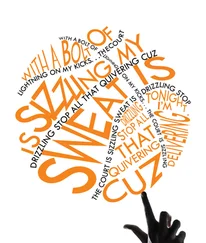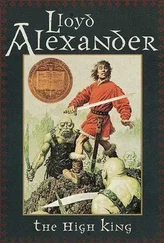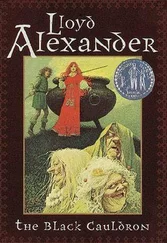I don’t remember how long I sat there. People shuffled by me with burned flesh sagging from their bones. Men and women moaned while the children cried out in pain or for their parents. I could do nothing for them. I imagined my father in the hospital, filled with the dying and injured, while the Führer, sipping tea, sat far away in his bunker protected from the bombs.
Not even dawn could assuage my rage. I left the house after someone gave me a cup of water. I had no conscious thought of where to go, so I wandered for many hours until I arrived at the hospital where my father was being treated. Fortunately, the building was only slightly damaged in the bombing. The spirits of the staff seemed as broken as the city. The nurses had given up protecting visitors against the grippe. Rows of beds lined the halls. Patients had been wheeled there for protection against breaking glass.
My father was near his room, his bed against a wall. Dread filled his eyes when he saw me. I caught sight of myself in a mirror. My face was streaked with ash, my hair caked against my skin, my clothes pitted with holes from the embers.
I collapsed against him and cried until I could shed no more tears. “The bombs,” I muttered, and could say no more.
My father knew what had happened without asking. He patted my hand as his face turned blank and ashen. He shed no tears. Anger and grief seethed inside him.
An all clear sounded and nurses moved the patients back to their rooms. I fell asleep in the chair by the window and slept well into the afternoon. My father and I talked only briefly. I told him I would have to return to my job. I didn’t mention Karl or where I was; it was not the time for revelations or predictions of happiness. I had no home to go back to, so I begged the nurse to let me stay the night so I could leave on a train the next day. My luggage and money had been destroyed; however, I had my identification papers with me. Because I served the Führer, I was certain I would have no problem getting passage to Rastenburg.
That night, as I sat in the hospital with my father, a second round of bombs fell. This time they sounded farther away. Still, the hospital shuddered with the blasts, which broke a few windows and carved spidery cracks in the walls. My father walked to the hall in his mask and I huddled against him. The hours dragged by as we rode out the attack. For most of the night, I held his hand.
The next morning, I told my father I was leaving. “Where will you go?” I asked him. “Our house was destroyed.”
“I will find some place,” he said. “Or perhaps I will live with my brother.”
I wasn’t convinced that he could find an apartment in Berlin, let alone in our district, and I was certain that living with Willy and Reina would make him miserable.
“Let me see what I can do,” I said, hoping to enlist Hitler’s help.
His face turned red and he puffed up in a rage. “Never! I will ask no favor from that… man!”
I held his hands. “You don’t understand. I can make your life easier.”
He jerked his hands away. “You do and you will be no daughter of mine. I will go back to my job and find a place to live on my own.”
I sighed. “Of course, Papa. Whatever you want.” I took his hands again and leaned in close to his face. I was no longer afraid of catching the grippe. “I’m on your side,” I whispered, and then kissed his forehead. “Please believe me.”
His eyes sparkled in their dark sockets and he seemed to understand. “Do what you must to survive. I know you’ll do what is right.”
I left the hospital and hitched a ride on a horse cart. I got off near the old neighborhood and walked through the crumbled stone and mortar, jumped across the burned timbers that had fallen into the street, some still smoking from the fire. People were sweeping up, piling the remains of their homes near the curbs. A few families had settled into burned-out buildings, having no place to go. Their faces looked wan and war-weary with vacant, searching eyes and no hint of a smile. Berliners had come to know how much misery could be meted out by the Allies. At the moment, I was as lonely and forsaken as they were. I could do nothing but stumble along with them.
My mother’s shoe was still lying where I had seen it two nights ago. I picked it up and turned it over in my hand. There were no bloodstains, no remnants of flesh. I asked a few neighbors if they had seen her, but no one had. I suspected she had perished in a firestorm, but I didn’t want to believe it. That she had sought shelter or found a home with a friend were false hopes. There was a slim chance she was in a different hospital from the one my father was staying in, but to find her would take days of searching.
Only the burned-out frame of our home was left. The roof had been incinerated, the remaining floors collapsed downward, one upon another. A sooty gray smoke rose in pigtail curls from the basement. The entire building—tons of debris—had collapsed on top of it. I walked as far as I could on the crumbling frame and called out for my mother. She did not answer. My voice cracked as I called out again and again. Only the pop and hiss of the lingering fire rose from the basement. In my heart, I knew she and Frau Horst were dead.
I said good-bye to a few people who wandered like ghosts through the neighborhood. Most acted like shell-shocked automatons. However, in some I saw a burning fanaticism for revenge—the destruction, the deaths, the Allied attacks, would be avenged. Little could be done, however, by those bombed out of their homes. Such retribution was wishful thinking, as unlikely as stopping the falling bombs.
I trudged away from my neighborhood. My stomach churned with each step as I thought of my mother, most likely dead, and my father, who had no home to return to. I stopped people I recognized and told them to watch for my mother. I couldn’t tell them where I worked, so I asked them to contact the Reichsbund in Berlin if they had any news.
Eventually, I arrived at the train station. I must have looked a fright in my tattered dress. However, we had all suffered the same fate, and nothing was said about my appearance. Horror and destitution had found homes in Berlin. I told the SS guard it was imperative that I return to the Führer. As I suspected, once I showed my papers I was whisked onto the train. The conductor gave me a blanket to keep warm. The train and the tracks had escaped damage from the bombs.
As the train traveled east toward the Wolf’s Lair, I had plenty of time to think about what needed to be done. Karl and I had a responsibility to act, and that urge burned brighter in me than it ever had before. I was certain others in the Party felt the same way.
The next afternoon, I arrived at Rastenburg to bitter cold. The day felt like winter, with the sun passing low on the southern horizon. Pinkish-red rays streaked the clouds and the icy smell of snow was in the air, but the crisp scent was tainted by the smell of decay from the foul swamp. The pervading dampness spread across headquarters. I found Dora at the dormitory and told her my story. She said she would find clothes to replace those destroyed in Berlin. I had left my few belongings at the Wolf’s Lair, but clothing was now in short supply. I stood next to a heater while I waited for her. A few women lay huddled under layers of blankets on their beds. Dora returned with four dresses and a winter coat. I showered, put on a small amount of makeup and then set out to find Karl.
I caught sight of him passing through the guard gate into the second perimeter. He was in his gray field uniform. His eyes were focused on the ground and he did not see me until I called his name. He looked up, broke into a run, swept me into his arms and kissed me.
Читать дальше












